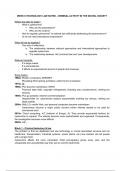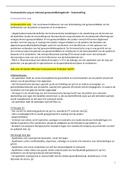College aantekeningen
Introduction to Technology Law, Lecture Notes about the criminal activity in the digital society
- Vak
- RGPSP50105
- Instelling
- Rijksuniversiteit Groningen (RuG)
Introduction to Technology Law, Lecture Notes about the criminal activity in the digital society (first year, LLB at the University of Groningen)
[Meer zien]





